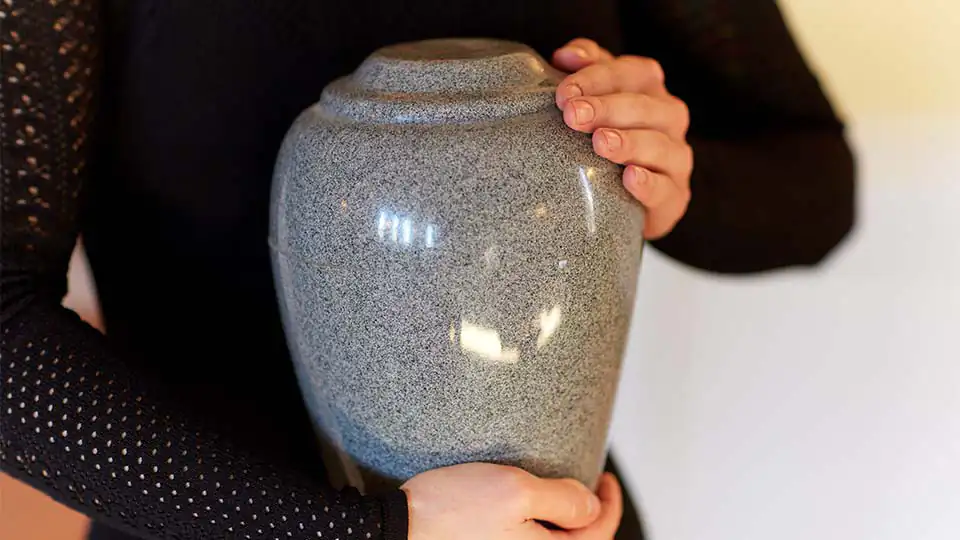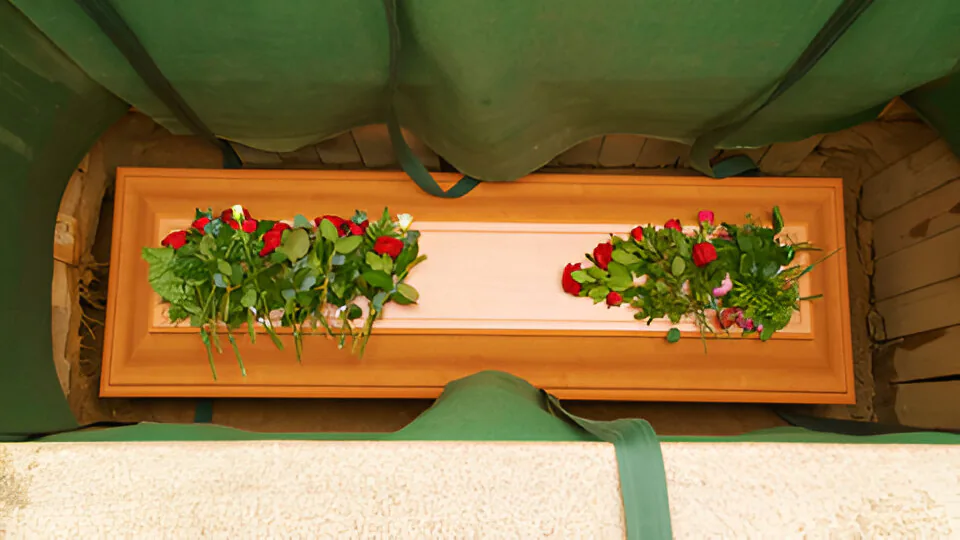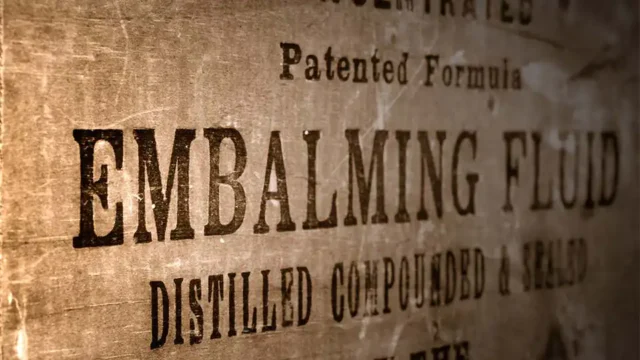
Undertakers may list a funeral as one cost, or plus disbursements.
Please note:
All information and costs below are correct May 2025.
Please telephone or visit the links to confirm up to date information.
Funeral disbursements are extra costs paid by your funeral director on your behalf, covering cremation, flowers and more. These often-overlooked expenses can add significantly to the total cost of a funeral.
Here are some of the main key disbursement points:
Understanding disbursements and how you can save funeral costs is important for most funerals.
Funeral disbursements are normally a part of arranging a funeral. These third party charges are not for the funeral director’s own services but cover essential services provided by others. Disbursements are often added on top of the funeral director’s basic or professional fees.
Typical disbursement fees can include:
Funeral directors usually ask for payment of disbursements upfront because they must pay these providers before or at the time of the funeral. Some prepaid funeral plans include a contribution toward disbursements, but this may not always cover the full cost, because prices often rise over time.
Loading UK funeral data…
As there is no single source for a comprehensive list of disbursement costs the pie chart is based on broad UK funeral industry averages, for example:
Knowing the various costs associated with a funeral allows individuals and families to financially prepare for the inevitable. This understanding helps prevent unexpected financial burdens during an already emotionally challenging time. Pre-planning allows individuals to make rational decisions and secure cost-effective arrangements in advance.
Understanding funeral disbursements empowers individuals to create a budget that aligns with their financial capabilities. This ensures that they can honour their loved one’s memory without overspending and hopefully not going into debt.
When you’re aware of the breakdown of funeral expenses, you can make informed decisions about which services and products are most meaningful and appropriate for your loved one’s send-off.
Knowledge of funeral costs can protect consumers from overcharges or unnecessary expenses. Being informed enables you to question or negotiate pricing when dealing with funeral service providers.
For those facing financial constraints, understanding funeral costs can help them identify potential sources of financial assistance, including government programs, charity organisations, or funeral plan payments.
a) Cremation fees: Can alter between different boroughs.
b) Burial plot fees: Can alter enormously between different cemeteries especially in London and other cities.
c) Cremation certificate: One doctor certificate.
d) Funeral service: Spokesperson to conduct the service
e) Funeral service: Printed order of service sheet or booklet
f) Flowers: Flowers are a common feature of funeral services, and the cost of floral arrangements can vary depending on the size and type of arrangements.
g) Embalming fee: This is needed after a post-mortem, and in other cases.
h) Transport: Such as a limousine to transport family and mourners to the service.
i) Transport of the deceased: Removal of the deceased from a nursing home or private residence out of office hours.
j) Viewing the deceased: Charges for viewing the deceased out of office hours.
k) Returned ashes: Cremated remains delivered to the family.
l) Medical device removal: Removal of a pacemaker or other medical device for cremation.
m) Oversized coffin: If the deceased was obese or very tall.
n) Headstones: If the family wishes to have a headstone erected.
o) Newspaper notices: Families may wish to place notices in local newspapers to inform friends and acquaintances of the funeral service.
p) Catering/Venue hire: It is common for families to hold a wake and provide food and refreshments for mourners following the funeral service.
q) Religious or ceremonies: If the family wishes to incorporate specific religious or cultural traditions/rituals into the funeral service.
r) Music and entertainment: The family may wish to have music or other entertainment at the funeral service.
When it comes to paying for funeral expenses, certain disbursements could be avoided as listed below:
a) If you arranged an early morning cremation, the fee can be reduced. If you have a cremation on a weekend, then the costs can double from the weekdays. The undertaker fees are also often increased for a weekend.
b) Inquire which are the cheaper, cemeteries or natural burial sites.
d) If you arrange your own spokesperson
e) Print your own order of service sheets/stapled booklet.
f) If you order the flowers directly from the florist, and not through an undertaker. Alternatively, if possible, you can use flowers from your garden.
g) Sometimes embalming is not necessary unless a post-mortem has been carried out. It is best to seek the advice of the undertaker to see if embalming is required.
h) If you inform your family members and guests to meet at the crematorium or cemetery then you could cut out the cost of limousines.
j) If there are plans to see the deceased at an undertaker, try and visit during office hours.
k) If you were to have the ashes scattered on the crematorium gardens, and not returned.
m) Purchase the coffin directly from a manufacturer.
n) Deal directly with a supplier of lower cost headstones.
o) Contact the newspaper yourself
p) Organise the wake yourself
q) Organise any ceremonies yourself
r) Organise any music or entertainment yourself
The six common funeral disbursements spokes of flowers, embalming, cremation or burial fees, funeral service, headstones and wake are explored in further detail below.
Comparing the cost
Choosing between cremation and burial is a deeply personal decision, and cost considerations often play a large role. Cremation is generally more cost-effective than traditional burial due to the absence of expenses associated with a grave, and headstone. However, costs can vary widely depending on individual preferences and location.

Prices can vary significantly by region and even within the same city.
The choice of cemetery and specific plot location influences burial expenses.
Traditional burials require coffins, which can range from simple to elaborate.
If chosen, embalming can add to burial costs.
For cremation, the cost of an urn or a container for ashes is a consideration.

On average, cremation costs range from just over *£400 in Northern Ireland to just over *£1000 in England.
Traditional burial costs can vary widely but typically range from just over **£400 in Northern Ireland to an average of **£1700 in England.

For those concerned about the environmental impact of traditional burials, eco-friendly alternatives are gaining popularity. Natural or green burials involve minimal environmental impact by avoiding embalming, using biodegradable coffins or shrouds, and selecting natural, unmarked grave sites in dedicated green woodland, or fields. These funeral disbursements provides a more environmental choice while still honouring the deceased.
Choosing between cremation and burial involves not only personal preferences but also cost considerations. Costs can vary widely, so it’s essential to research and plan according to your budget. Eco-friendly burial options offer a sustainable alternative for those looking to minimise their environmental footprint while preserving the memory for their loved ones.

Understanding the preservation process
Embalming is a funeral disbursement that involves a mortuary procedure designed to preserve a deceased person’s body temporarily. It involves injecting a mixture of chemicals, including formaldehyde, into the body’s vascular system to slow decomposition. Embalming serves three main purposes:
It delays the decomposition process, allowing for an open-casket viewing and extended visitation periods.
It helps reduce the risk of infection and the spread of disease.
Embalming can improve the deceased’s appearance for a more natural and peaceful presentation during the funeral.
Embalming costs can vary by location and the complexity of the procedure. On average, embalming typically ranges from £150 to £300. This fee covers the embalmer’s services, the necessary chemicals, and preparation of the body.
However, additional costs may arise if you choose additional services such as cosmetology, hairstyling, and/or dressing.
Embalming is not legally required. However, some situations may necessitate embalming such as:
When a body is transported abroad, or long distances the body would require embalming and/or refrigeration.
If a significant delay occurs between death and burial or viewing, embalming may be necessary.
Some religions such as Muslim do not allow embalming. Therefore, burial normally takes place within 1 -3 days.
For those seeking to reduce costs or exploring more eco-friendly options, alternatives to traditional embalming exist:
These options bypass the need for embalming, allowing for a quicker disposition of the body.
Refrigeration is a temporary preservation method that can delay decomposition for a limited time without the use of embalming chemicals.
Embalming can be carried out without the toxic formaldehyde which is normally used.

A natural colourful farewell
Flowers have played a timeless role in funeral services across cultures and eras. This funeral disbursement is an expression of love, sympathy, and respect for the departed. Beyond their visual beauty, flowers symbolise the nature cycle of birth, life, and death. They serve as a reminder of the delicate nature of existence, making them for many a meaningful part of the grieving process.
Funeral flowers come in various types, each carrying its unique significance:
Often associated with restored innocence and the soul’s return to a peaceful state.
White roses symbolise purity and reverence, while red roses signify love and respect.
These are a symbol of remembrance and admiration for the deceased.
Common in many Asian cultures, chrysanthemums symbolise grief and loyalty.
Representing everlasting love and beauty, orchids can be a fitting choice.
Selecting a thoughtful wreath or arrangement can go a long way in showing you care.
Think about the deceased’s favourite flowers or colours to personalise the arrangement.
If you’re unsure, consult with the bereaved family or the deceased’s close friends to select flowers that hold special meaning.
Opt for elegant arrangements that reflect the solemnity of the occasion, but avoid excessive extravagance.
Ensure timely delivery to the funeral home or service location. Attach a flower message card with a heartfelt message to convey your condolences.
Sometimes, potted plants or living arrangements are appreciated, as they can serve as a lasting memorial.
The cost of funeral flowers can vary widely based on factors like the type of flowers, the size and complexity of the arrangement. Flowers can be one of the less expensive funeral disbursements. Floral tributes can range from £25 for a simple spray to £100’s for more elaborate displays. Discuss your budget with a florist to find a suitable arrangement.
Understanding their significance, types, and arranging tips ensures that your floral tribute is a heartfelt expression.

Honouring your loved one
A funeral service is a deeply meaningful way to honour and remember a loved one, but it can also come with significant costs. There are two main two cost-cutting strategies related to funeral services:
Having a spokesperson to lead and officiate the funeral service and read the eulogy is a traditional and comforting choice. However, many people are not aware that there’s often a fee from the undertaker for arranging this service, on top of the spokesperson fee.
A spokesperson is generally a clergy member, celebrant, humanist or Salvation Army officer. However, even a family member or friend who is comfortable speaking in front of an audience can be a spokesperson.
A spokesperson normally requires a fee, but obviously a family member or friend could conduct the service for free. Funeral directors can assist in coordinating this arrangement. Costs can range from around £80 to £350+, making it one of the less expensive funeral disbursements.
Order of service sheets provide a guide to the funeral service, helping attendees follow along and participate. While these sheets are essential, purchasing them through the funeral director can be expensive.
A cost-effective alternative is to produce the order of service sheets independently. You can create a personalised design and content, which adds a unique touch to the service. Printing order of service sheets at home using a computer and printer or photocopying them at a local library or print shop can be a much more budget-friendly option.
By finding a spokesperson and producing order of service sheets independently, you can maintain the significance of the funeral service while managing costs effectively.

A lasting memorial
For many headstones stand as enduring symbols of love and remembrance, marking the final resting place of our dearly departed. However, these monuments often come with a hefty price tag, making them a significant consideration in the funeral disbursements process. This heavy price often means that many cannot afford the cost.
The importance of headstones as a permanent memorial and how choosing a lower-cost headstone manufacturer can provide a more affordable option is discussed.
Headstones hold a special place in funeral traditions, allowing families to create a lasting tribute to their loved ones. These markers provide a physical connection to the deceased, a place for reflection, and a means of preserving their memory for generations to come. The choice of a headstone and script is deeply personal, reflecting the unique personality and life of the individual.
While headstones play a vital role in memorialising the departed, they are often very expensive, and out of reach for some families or individuals. The price of a headstone depends on factors such as material, design, size, and engraving. Traditional headstones made from granite or marble can range from hundreds to thousands of pounds, placing a significant financial burden on families already dealing with funeral costs.
To make headstones more affordable, consider exploring lower-cost headstone manufacturers. These manufacturers offer a range of options that cater to different budgets. By choosing a more cost-effective headstone, you can maintain the significance of the memorial while reducing the overall financial strain associated with funeral disbursements.
Headstones serve as permanent memorials, honouring the lives and legacies of our loved ones. However, their expense can be a source of stress during an already emotionally challenging time.

A time to remember
A wake is one of the time-honoured funeral disbursements to bring friends and family to come together to remember and celebrate the life of a departed loved one. However, the costs associated with hosting a wake can be significant. Listed below are some of the expenses involved, and the option of holding the wake at home to keep costs down. Other suggestions are shown for achieving a lower-cost wake.
Funeral wakes can be costly, primarily due to expenses related to venue rental, catering, and décor. These costs can add up, particularly when organised through an undertaker or event/catering specialists.
One way to significantly reduce the cost of this potentially expensive funeral disbursement is to consider hosting the wake at home. If suitable, consider hosting the wake at your home or the home of a close friend or family member. This obviously eliminates venue rental costs, and offers a more personal setting.
Instead of hiring caterers, opt for a potluck-style gathering where attendees bring dishes to share. This not only reduces costs but also encourages a sense of community.
Decorations can be a major expense. Consider DIY decor options or repurpose items you already have to create a meaningful and personalised theme.
Use digital invitations instead of printed ones to save on stationery and postage costs.
Alcohol expenses can add up quickly. Limit or omit alcoholic beverages, or opt for more affordable options. Alternatively if holding the wake in a pub then make it clear in the invitation that guests are responsible for purchasing their own drinks.
Utilise personal playlists or ask musically inclined friends or family members to provide music, reducing the need for hired entertainment.
Instead of elaborate floral arrangements, opt for simple and locally sourced flowers or greenery. An example of this would be flowers from your own or a friend/relative’s garden if suitable.
If possible, use your existing furniture and seating options for the wake, minimising rental expenses.
Funeral disbursements can be traced back to ancient times when burial practices were an integral part of many cultures.

In ancient Egypt, the wealthy were buried in elaborate tombs that were filled with treasures, while the poor were buried in simple graves. Funeral expenses were paid by the family of the deceased and were seen as an important part of honouring the dead.
In ancient Greece, funeral rites were performed by family members and close friends, who were responsible for preparing the body for burial and arranging for the funeral procession. Funeral expenses were also paid by the family, and the cost of the funeral was often seen as an indication of the deceased’s social status.
During the Middle Ages in Europe, funeral expenses were typically paid by the church or the local community. Funeral rites were often elaborate and included a procession through the streets, followed by a mass or other religious ceremony.
In modern times, funeral disbursements are typically paid for by the family of the deceased, or by their estate if they have made prior arrangements.
Funeral disbursements are third-party costs paid by the funeral director on your behalf. These are not part of the funeral director’s own fees and may include cremation or burial fees, doctor’s certificates, spokesperson fees, flowers, printed order of service sheets, and venue or catering costs for the wake.
Yes, many disbursements are optional or can be reduced. For example, you could choose a direct cremation with no service, provide your own flowers, host the wake at home, create your own order of service sheets, use a family member or friend to read the service and eulogy.
Most prepaid funeral plans include only a contribution towards disbursements and not the full cost. This contribution may not cover rising prices over time. Always check the plan’s small print to understand exactly which third-party fees are included and which may need to be paid when the time comes.
If you’re struggling financially, you may qualify for help through the UK Government’s Funeral Expenses Payment (for those on certain benefits), charities and benevolent funds linked to the deceased’s profession or religion, local council public health funerals (in cases with no next of kin or estate).
Yes, funeral disbursements can be claimed back from the deceased’s estate before other debts are paid. If the estate has enough funds, the executor or person who paid the funeral bill can usually be reimbursed.
Whether it’s choosing cost-effective alternatives, simplifying arrangements, or DIY options, incorporating these strategies can significantly reduce the financial burden.
The main costs have been broken down for a clear understanding. Let’s recap from the main disbursements and reaffirm the importance of other informed decision-making.
Flowers serve as a beautiful tribute, symbolising love and remembrance. The choice of flowers can carry deep meaning, and careful selection adds a personal touch to the service. It will be more cost effective for the person organising the funeral to deal directly with the florist, to avoid an undertakers fee.
Cremation and burial fees are mostly influenced by the area in which the cremation or burial is carried out. Purchasing the coffin directly from a manufacturer can be more cost saving than purchasing through an undertaker.
Embalming is not always required, and is not allowed for a natural burial, but is a sensible procedure in many cases.
Whether you are thinking of using a humanist, celebrant, Salvation Army officer, religious spokesperson it is best to book directly. This will avoid any extra fees an undertaker would charge.
Again it is always best to contact a stone mason directly to avoid any extra third party fees.
If possible, hold the funeral wake at home to avoid premises/hall hire. Likewise, if possible, also organise the food and drinks, if this is not possible then shop around at local pubs who can provide both food, drink and a space. Church halls often can provide a space and sometimes offer catering.
The Government and some charities offer financial assistance that can provide relief to those struggling with funeral expenses. Understanding these resources can make a significant difference in managing costs.
Planning ahead acknowledges that foresight can ease financial burdens during emotional times.
For personalised guidance, reach out to low-cost funeral professionals. Like most other funeral directors they possess the expertise to tailor services to your preferences, ensuring a dignified farewell that aligns with your financial capabilities.
For further helpful information covering different aspects of funerals from poems, flowers, bereavement gift ideas, what to wear at a funeral, low-cost headstones and much more, visit the Save Funeral Costs™ blog.
Save time, money and stress with the step-by-step PDF guide to help you organise a funeral and contact a low-cost undertaker.
Low-Cost Funeral Planning Guide

Discover the best funeral cost-savings and useful ideas
Download How to Save on Funeral Costs PDF for financial help